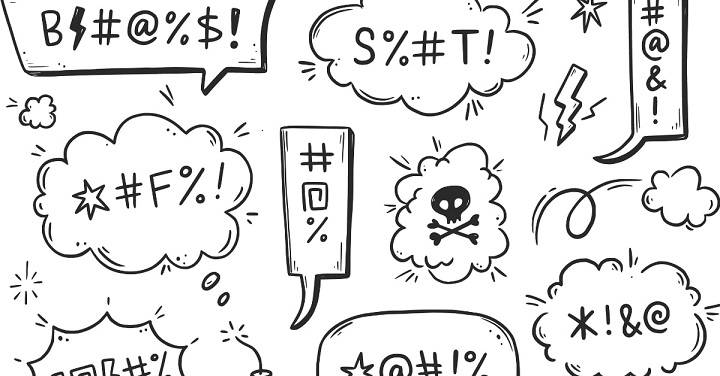Learning a new language is exciting — and understanding its swear words can be both entertaining and culturally enlightening. Spanish, spoken by over 500 million people worldwide, is rich with colorful expressions that range from playful to truly offensive. In this article, we’ll dive deep into Spanish swear words, their meanings, usage, and regional variations.
Why Learn Spanish Swear Words?
Before we start cursing up a storm, it’s important to understand why learning swear words matters:
- Cultural Insight: Swear words often reveal a lot about the culture, humor, and values of a language community.
- Real Conversations: Native speakers often use slang and curses in casual speech.
- Better Comprehension: You’ll understand movies, music, and even memes much better.
However, remember to use these words carefully and respectfully!
Most Common Spanish Swear Words
Here’s a breakdown of the most popular Spanish curse words you’re likely to hear.
Mierda — “Sh*t”
Meaning: It’s the equivalent of “shit” in English.
Usage:
Expressing frustration: ¡Mierda! Olvidé las llaves (Sh*t! I forgot the keys.)
Minor accidents or bad luck.
Note: Common but not overly offensive.
Cabrón — “Asshole” or “Bastard”
Meaning: Depending on the tone and context, it can be extremely offensive or even a term of affection among friends.
Usage:
Insulting someone: ¡Eres un cabrón! (You’re a bastard!)
Joking with friends: ¡Qué cabrón eres! (You cheeky bastard!)
Note: Be careful; it can escalate a situation.
Puta — “Whore”
Meaning: Directly translates to “whore” and is highly offensive when used against someone.
Usage:
As an insult: ¡Hijo de puta! (Son of a b*tch!)
Expressing anger: ¡Puta madre! (F*ck!)
Coño — “C*nt”
Meaning: Extremely vulgar word for female genitalia, used differently in Spain compared to Latin America.
Usage:
Surprise or anger: ¡Coño! ¡No me lo esperaba! (Damn! I didn’t expect that!)
Regional Tip: In Spain, it’s common in speech but can shock Latin Americans.
Hostia — “Holy Sh*t” (Literally “Communion Wafer”)
Meaning: In Spain, “hostia” originally refers to the communion wafer but has become a way to curse.
Usage:
Surprise or anger: ¡Hostia! ¡Qué rápido vas! (Holy sh*t! You’re going so fast!)
Light-Hearted and Funny Spanish Swear Words
Not all swearing is heavy and aggressive. Some Spanish insults are actually funny and used more playfully.
Examples:
Gilipollas — “Idiot” (Spain)
- Boludo — “Dumbass” (Argentina)
- Huevón — “Lazy idiot” (Chile, Peru)
Common characteristics
- Less offensive when used among friends.
- Tone of voice is crucial.
- Regional meanings can vary widely.
Regional Differences in Spanish Swear Words
Spanish isn’t uniform — slang and swearing vary by country. Here’s how cursing changes across regions:
Spain
- Frequent use of coño, hostia, and gilipollas.
- Playful swearing among close friends is common.
Mexico
- Words like pendejo (idiot/jerk) and chingar (to f*ck) dominate.
- Chingada madre is a famously Mexican expression of rage.
Argentina
- Heavy use of boludo and pelotudo (both meaning fool or idiot).
- Swearing is casual and sometimes affectionate.
Colombia
- Words like gonorrea (very offensive) are unique to Colombian slang.
- Mild words like malparido (bastard) are common in heated conversations.
How to Use Spanish Swear Words Without Offending
Swearing in a foreign language can backfire if you’re not careful. Follow these guidelines:
- Learn the context: Some words are fine among friends but offensive in formal settings.
- Mind your tone: Friendly banter vs. aggressive anger makes a big difference.
- Observe locals first: Notice when and how native speakers use certain words.
- Avoid in professional settings: Keep it clean when at work or around elders.
Spanish Swear Words You Should Avoid
Some curse words are extremely strong and could seriously offend someone. Here’s what to watch out for:
- Culo roto (offensive term, “broken ass”)
- Chinga tu madre (extremely insulting, “f*ck your mother”)
- Hijo de la gran puta (highly vulgar, “son of a big whore”)
Tip: It’s better to understand them but not use them unless you’re 100% sure it’s appropriate.
Final Thoughts on Spanish Swear Words
Swearing is a fascinating part of mastering Spanish — it gives you deeper cultural insights and helps you sound more natural. However, respect and context are key. Use lighter insults among friends if you’re unsure, and always err on the side of caution in formal or new environments.








